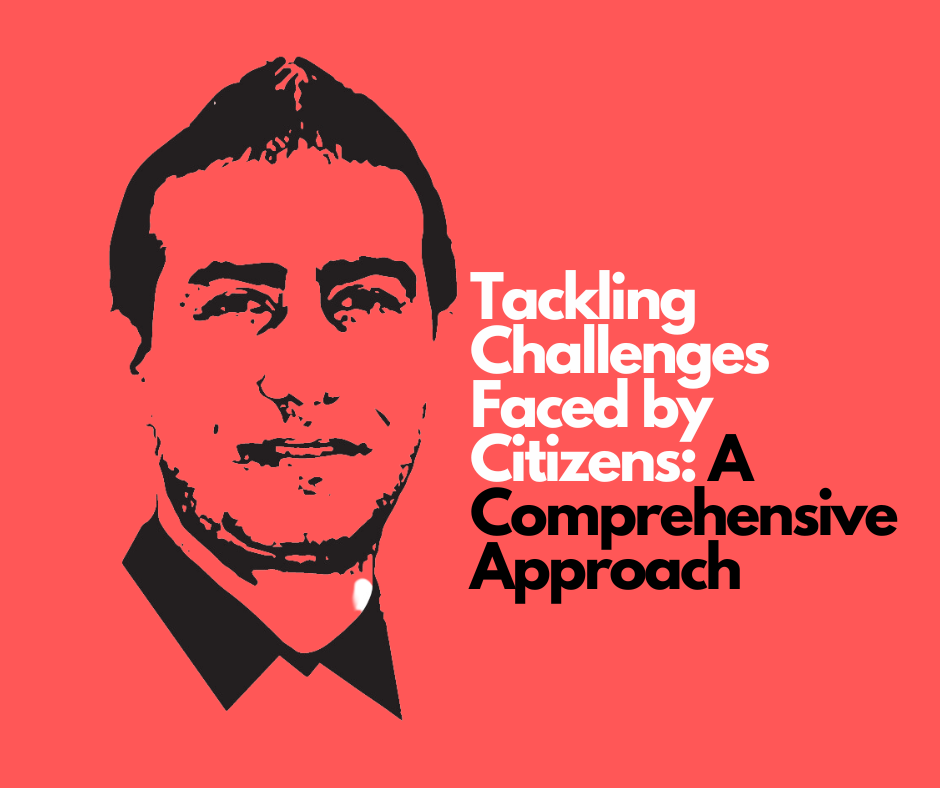In an era characterized by an abundance of information, it is crucial to ensure that citizens have access to reliable and accurate information when making decisions that affect their lives and communities. Dr. Bilal Ahmad Bhat, a visionary leader and advocate for informed citizenship, emphasizes the importance of providing reliable information, creating awareness, and encouraging informed citizenship to tackle the myriad challenges faced by citizens today.
Reliable Information
Having access to reliable information is fundamental for effective decision-making. Dr. Bilal Ahmad Bhat highlights several key aspects of ensuring the dissemination of reliable information:
- Fact-Checking and Verification: In a world where misinformation and fake news are rampant, it is essential to promote fact-checking and verification of information. Citizens should be encouraged to cross-check information from multiple credible sources before forming opinions or making decisions.
- Transparency: Governments, institutions, and organizations must maintain transparency in their operations and communications. Transparent practices build trust and ensure that citizens have access to accurate and comprehensive information about policies, programs, and initiatives.
- Accessibility: Information should be readily accessible to all citizens, regardless of their socioeconomic status, education level, or geographical location. Efforts should be made to bridge the digital divide and ensure that everyone has equal access to information.
- Media Literacy: Educating citizens on media literacy is crucial in helping them discern reliable sources from unreliable ones. Media literacy programs should be integrated into educational curricula to equip individuals with the skills needed to navigate the complex information landscape.
Creating Awareness
Creating awareness about critical issues is vital for fostering an informed and engaged citizenry. Dr. Bilal Ahmad Bhat outlines several strategies for raising awareness:
- Public Campaigns: Conducting public awareness campaigns on important issues such as health, education, environment, and civic rights can help inform citizens and encourage proactive engagement. These campaigns can utilize various media platforms, including social media, traditional media, and community outreach programs.
- Community Engagement: Engaging with communities at the grassroots level is essential for understanding their unique challenges and needs. Community meetings, town halls, and focus groups can provide platforms for dialogue and information sharing.
- Collaborations: Collaborating with non-governmental organizations, community groups, and educational institutions can amplify awareness efforts. Partnerships can leverage diverse expertise and resources to reach a broader audience.
- Technology Utilization: Leveraging technology and digital platforms can enhance the reach and impact of awareness initiatives. Mobile applications, online portals, and social media can be powerful tools for disseminating information and engaging citizens.
Encouraging Informed Citizenship
Informed citizenship is the bedrock of a vibrant and resilient democracy. Dr. Bilal Ahmad Bhat emphasizes the importance of fostering informed citizenship through the following approaches:
- Civic Education: Integrating civic education into school curricula is essential for nurturing informed and responsible citizens. Civic education should cover topics such as the functioning of government, citizens’ rights and responsibilities, and the importance of civic participation.
- Encouraging Participation: Citizens should be encouraged to participate actively in the democratic process, including voting, attending public meetings, and engaging in civic activities. Participation fosters a sense of ownership and responsibility towards community and national issues.
- Empowering Youth: The youth are the future of any nation, and empowering them with knowledge and skills is crucial. Programs that engage young people in civic activities, leadership training, and community service can inspire them to become active and informed citizens.
- Building Trust: Trust between citizens and institutions is fundamental for informed citizenship. Efforts should be made to build and maintain trust through transparency, accountability, and consistent engagement.
- Promoting Dialogue: Encouraging open and respectful dialogue on important issues can help bridge divides and foster mutual understanding. Platforms for constructive debate and discussion can enhance informed decision-making and collective problem-solving.
Conclusion
In conclusion, tackling the challenges faced by citizens requires a multifaceted approach that prioritizes reliable information, creates awareness, and encourages informed citizenship. Dr. Bilal Ahmad Bhat’s vision for a well-informed and engaged citizenry underscores the importance of these elements in fostering a vibrant and resilient society. By ensuring that citizens have access to accurate information, raising awareness about critical issues, and promoting active participation in the democratic process, we can collectively address the challenges facing our communities and build a brighter future for all. For more insights and to join the movement for informed citizenship,





1 Comment
Tackling Challenges Faced by Citizens: A Comprehensive Approach - KASHmirie - It is all about Kashmiriyat
[…] to reliable and accurate information when making decisions that affect their lives and communities. Dr. Bilal Ahmad Bhat, a visionary leader and advocate for informed citizenship, emphasizes the importance of providing […]